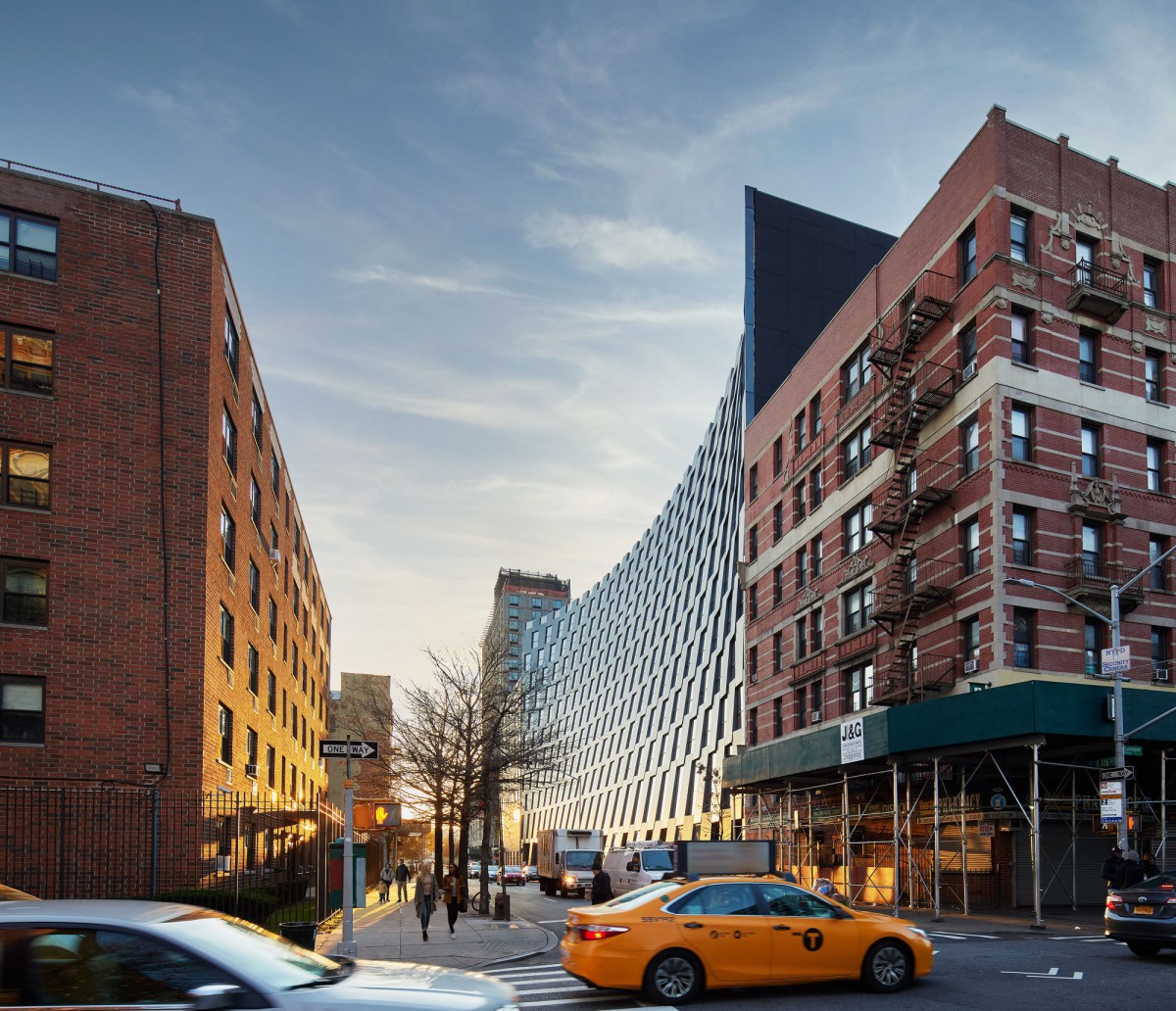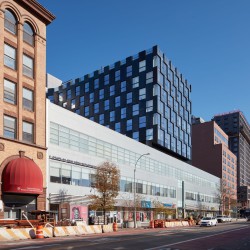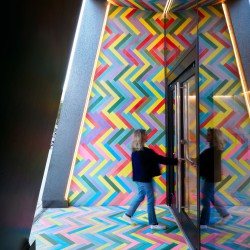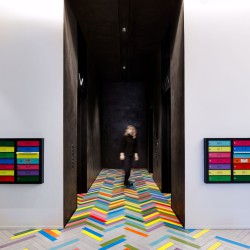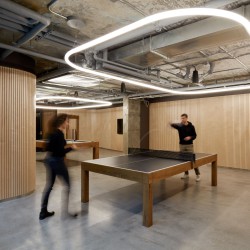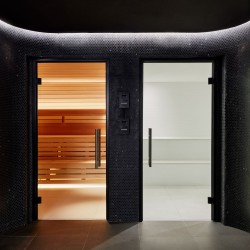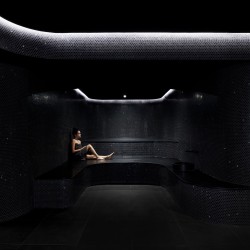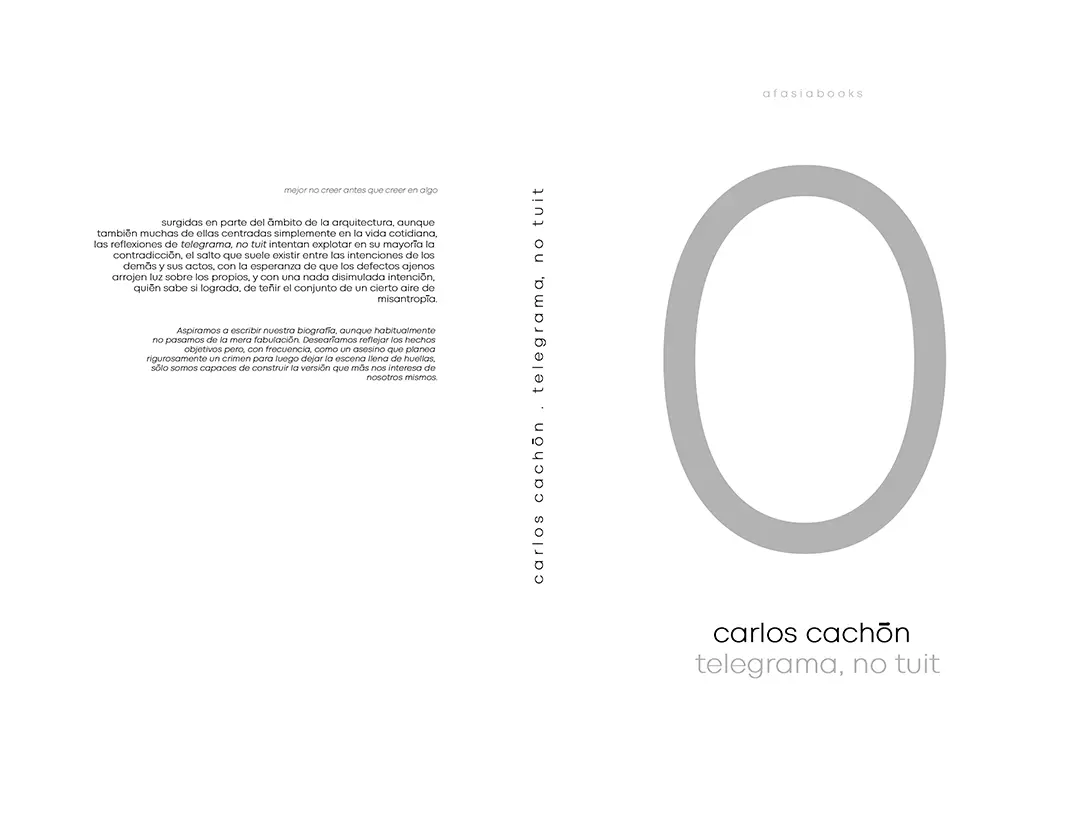BIG . photos: © Pernille Loof & Thomas Loof
Bridging Harlem’s active 125th Street corridor and the quieter 126th Street, The Smile is a mixed-used development that houses a nursing school on the street level and residential apartment units above. One-third of these residential units contain affordable housing units that strengthen and provide housing diversity within the neighborhood. East 126’s unique T-shaped footprint offers a diverse set of unit sizes and layout organizations, while also strengthening the connection relationship with the neighboring buildings. This southern cantilevered portion of the building appears to hover over the existing commercial building on 125th Street, creating a dynamic component in the evolving uptown streetscape.
Along 126th Street the building’s facade gently slopes inwards as it rises upwards, softening the hard linear street edge in an elegant gesture. This architectural move enables the building massing to comply with the city’s zoning envelope and at the same time enables the residential street to have more direct sunlight. The use of an interlocking checkerboard facade panel system allows for floor-to-ceiling windows in each unit, creating open views of the city for the tenants. Apartment units overlook East Harlem towards Central Park as well as northern views over the Harlem River and the Bronx.
The entrances are tiled with vibrant splashes of colored concrete that draw inspiration from the neighborhood’s murals and provides a unique, lively welcome into the building. The interior amenities for residents include a fitness center, media room, relaxation spas, social lounges, and workspace which overlooks a skylight-lit three-storey gallery. This interstitial space highlights the integration of the existing building brick facade and the new building’s exposed steel structure. Rooftop amenities include whirlpool spas, a swimming pool, and roof decks surrounded by shaped landscape features that provide spaces for various types of social activities and gatherings.
While the exterior envelope is blackened textured metal panels the interior residential spaces are a neutral, minimal palette. Throughout the interiors, spaces consist of raw architectural materials of wood, exposed concrete structure, and exposed steel trusses. The more public amenities spaces combine the languages of the exterior facade metal panel and colored tiles alongside the more neutral residential materials.
_

